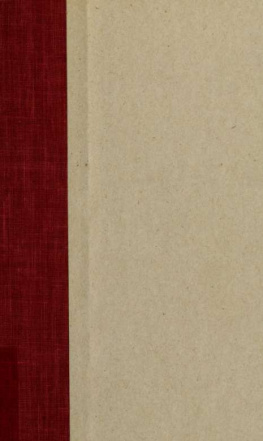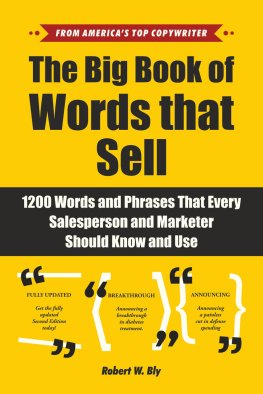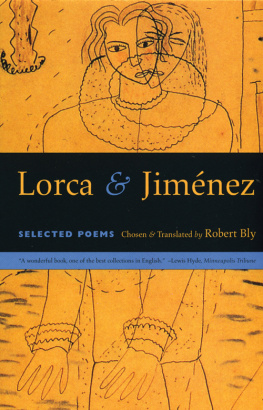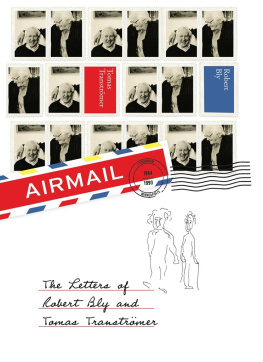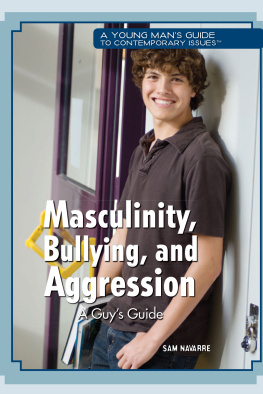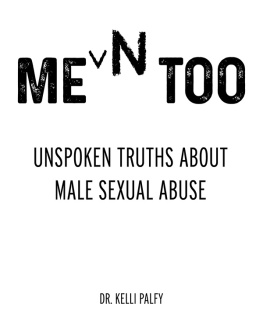Bly - Iron John: a book about men
Here you can read online Bly - Iron John: a book about men full text of the book (entire story) in english for free. Download pdf and epub, get meaning, cover and reviews about this ebook. City: Reading, Mass., United States, year: 1990, publisher: Addison-Wesley, genre: Romance novel. Description of the work, (preface) as well as reviews are available. Best literature library LitArk.com created for fans of good reading and offers a wide selection of genres:
Romance novel
Science fiction
Adventure
Detective
Science
History
Home and family
Prose
Art
Politics
Computer
Non-fiction
Religion
Business
Children
Humor
Choose a favorite category and find really read worthwhile books. Enjoy immersion in the world of imagination, feel the emotions of the characters or learn something new for yourself, make an fascinating discovery.
- Book:Iron John: a book about men
- Author:
- Publisher:Addison-Wesley
- Genre:
- Year:1990
- City:Reading, Mass., United States
- Rating:3 / 5
- Favourites:Add to favourites
- Your mark:
- 60
- 1
- 2
- 3
- 4
- 5
Iron John: a book about men: summary, description and annotation
We offer to read an annotation, description, summary or preface (depends on what the author of the book "Iron John: a book about men" wrote himself). If you haven't found the necessary information about the book — write in the comments, we will try to find it.
Abstract: On the role of the male mentor, the author seeks to discover the truths about masculinity that gets beyond the stereotypes of our popular culture
Bly: author's other books
Who wrote Iron John: a book about men? Find out the surname, the name of the author of the book and a list of all author's works by series.
Iron John: a book about men — read online for free the complete book (whole text) full work
Below is the text of the book, divided by pages. System saving the place of the last page read, allows you to conveniently read the book "Iron John: a book about men" online for free, without having to search again every time where you left off. Put a bookmark, and you can go to the page where you finished reading at any time.
Font size:
Interval:
Bookmark:

This book made available by the Internet Archive.






For Noah, Micah, and Sam
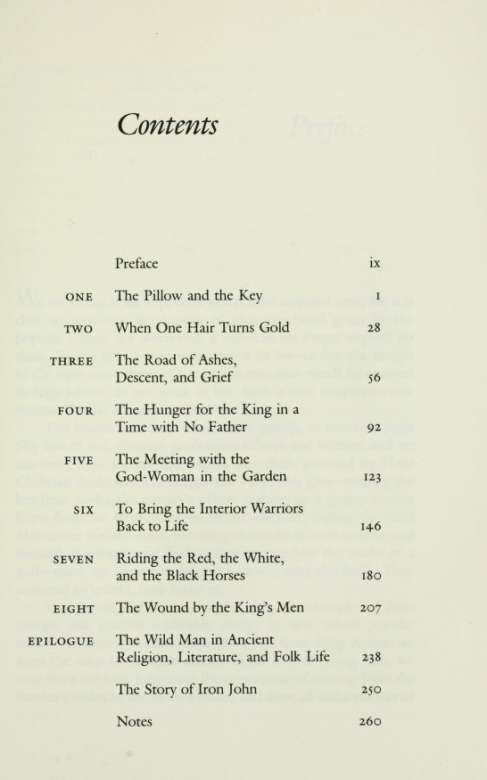
Preface
We are living at an important and fruitful moment now, for it is clear to men that the images of adult manhood given by the popular culture are worn out; a man can no longer depend on them. By the time a man is thirty-five he knows that the images of the right man, the tough man, the true man which he received in high school do not work in life. Such a man is open to new visions of what a man is or could be.
The hearth and fairy stories have passed, as water through fifty feet of soil, through generations of men and women, and we can trust their images more than, say, those invented by Hans Christian Andersen. The images the old stories givestealing the key from under the mother's pillow, picking up a golden feather fallen from the burning breast of the Firebird, finding the Wild Man under the lake water, following the tracks of one's own wound through the forest and finding that it resembles the tracks of a godthese are meant to be taken slowly into the body. They continue to unfold, once taken in.
It is in the old myths that we hear, for example, of Zeus energy, that positive leadership energy in men, which popular culture constandy declares does not exist; from King Arthur we learn the value of the male mentor in the lives of young men; we hear from the Iron John story the importance of moving from the mother's realm to the father's realm; and from all initiation stories
x / Preface
we learn how essential it is to leave our parental expectations entirely and find a second father or "second King."
There is male initiation, female initiation, and human initiation. In this book I am talking about male initiation only. I want to make clear that this book does not seek to turn men against women, nor to return men to the domineering mode that has led to repression of women and their values for centuries. The thought in this book does not constitute a challenge to the women's movement. The two movements are related to each other, but each moves on a separate timetable. The grief in men has been increasing steadily since the start of the Industrial Revolution and the grief has reached a depth now that cannot be ignored.
The dark side of men is clear. Their mad exploitation of earth resources, devaluation and humiliation of women, and obsession with tribal warfare are undeniable. Genetic inheritance contributes to their obsessions, but also culture and environment. We have defective mythologies that ignore masculine depth of feeling, assign men a place in the sky instead of earth, teach obedience to the wrong powers, work to keep men boys, and entangle both men and women in systems of industrial domination that exclude both matriarchy and patriarchy.
Most of the language in this book speaks to heterosexual men but does not exclude homosexual men. It wasn't until the eighteenth century that people ever used the term homosexual; before that time gay men were understood simply as a part of the large community of men. The mythology as I see it does not make a big distinction between homosexual and heterosexual men.
I speak of the Wild Man in this book, and the distinction between the savage man and the Wild Man is crucial throughout. The savage mode does great damage to soul, earth, and humankind; we can say that though the savage man is wounded he prefers not to examine it. The Wild Man, who has examined his wound, resembles a Zen priest, a shaman, or a woodsman more than a savage.
The knowledge of how to build a nest in a bare tree, how to fly to the wintering place, how to perform the mating danceall of this information is stored in the reservoirs of the bird's instinc
tual brain. But human beings, sensing how much flexibility they might need in meeting new situations, decided to store this sort of knowledge outside the instinctual system; they stored it in stories. Stories, thenfairy stories, legends, myths, hearth storiesamount to a reservoir where we keep new ways of responding that we can adopt when the conventional and current ways wear out.
Some of the great students of this reservoir in recent centuries have been George Groddeck, Gurdjieff, Carl Jung, Heinrich Zim-mer, Joseph Campbell, and Georges Dumezil. My first teacher in unfolding the fairy story was Marie-Louise von Franz, and I have tried to be as true to the masculine stories as she has been to the feminine in her many books.
This book draws on a whole community of men, many of whom worked in this field long before I entered it. First among those is Alexander Mitscherlich, the German analyst, who died in 1981, and many fine thinkers in English as well. I am indebted deeply to the men with whom I have joyfully taught during the last eight yearsMichael Meade, James Hillman, Terry Dobson, Robert Moore, and John Stokes, among many others. I thank Keith Thompson for his interest in the men's material; the first chapter is a rewriting of his interview with me. And I thank my editor, William Patrick, for his enthusiasm and insight.
I am grateful also to the many men who have trusted me enough to listen, and have honored me by telling me their own stories, or have simply sung, danced, or wept. Even though in this book I lay out an initiatory path in eight stages, other men may see a different order of those stages, or entirely different stages. We make the path by walking. Antonio Machado said:
Tou walker, there are no roads, only wind trails on the sea.
Robert Bly
CHAPTER ONE
The Pillow and the Key
We talk a great deal about "the American man," as if there were some constant quality that remained stable over decades, or even within a single decade.
The men who live today have veered far away from the Saturnian, old-man-minded farmer, proud of his introversion, who arrived in New England in 1630, willing to sit through three services in an unheated church. In the South, an expansive, moth-erbound cavalier developed, and neither of these two "American men" resembled the greedy railroad entrepreneur that later developed in the Northeast, nor the reckless I-will-do-without culture settlers of the West.
Even in our own era the agreed-on model has changed dramatically. During the fifties, for example, an American character appeared with some consistency that became a model of manhood adopted bv manv men: the Fifties male.
He got to work early, labored responsibly, supported his wife and children, and admired discipline. Reagan is a sort of mummified version of this dogged type. This sort of man didn't see women's souls well, but he appreciated their bodies; and his view of culture and America's part in it was boyish and optimistic. Many of his qualities were strong and positive, but underneath the charm and bluff there was, and there remains, much isolation, deprivation, and passivity. Unless he has an enemy, he isn't sure that he is alive.
Font size:
Interval:
Bookmark:
Similar books «Iron John: a book about men»
Look at similar books to Iron John: a book about men. We have selected literature similar in name and meaning in the hope of providing readers with more options to find new, interesting, not yet read works.
Discussion, reviews of the book Iron John: a book about men and just readers' own opinions. Leave your comments, write what you think about the work, its meaning or the main characters. Specify what exactly you liked and what you didn't like, and why you think so.

